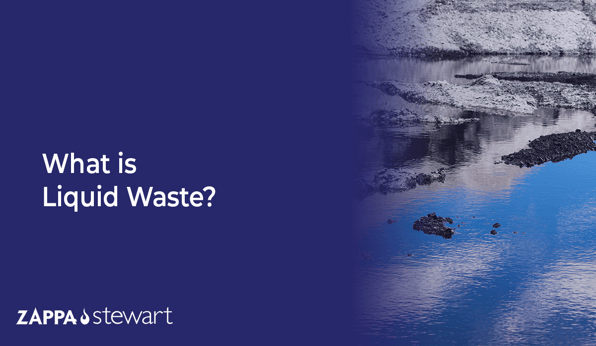The smart Trick of Reclaim Waste That Nobody is Talking About
The smart Trick of Reclaim Waste That Nobody is Talking About
Blog Article
Some Known Details About Reclaim Waste
Table of ContentsNot known Details About Reclaim Waste The 9-Minute Rule for Reclaim Waste4 Simple Techniques For Reclaim WasteThe Ultimate Guide To Reclaim WasteThe Ultimate Guide To Reclaim Waste
Explore the kinds, events, and kinds of fluid waste. Domestic sewer waste refers to the waste and items from a household septic tank. This sort of waste is created by human beings in residences, institutions, and other buildings. This only consists of septic storage tanks that have a drain field. The proper management and disposal of residential sewer waste require liquid waste to be moved to a sewer treatment plant where the appropriate techniques and devices are put on detoxify and throw away waste.
Commercial waste usually consists of potential risks, such as flammable products or a mix of liquid and strong waste products, and calls for an advanced and detailed disposal process. The disposal of industrial waste typically involves the filtering of waste prior to transport to make sure safe and correct disposal. Industrial waste is created from byproducts and overflow of commercial procedures and production.
This type of waste can not use the same sewage monitoring transport or processes as septic or commercial liquids. The hazardous waste administration procedure needs the inspection and screening of fluid waste before it undergoes the disposal procedure (liquid waste removal melbourne). Overflow waste is the liquid waste that originates from overflow and excess stormwater in highly inhabited locations or cities
Runoff waste can create contamination and flooding if not managed effectively. Guaranteeing correct waste administration can protect against calamities and reduce ecological harm.
The 8-Minute Rule for Reclaim Waste
Get in touch with PROS Solutions today to discover our waste management and disposal solutions and the appropriate methods to care for the liquid waste you generate.
(http://go.bubbl.us/e67627/7593?/Reclaim-Waste)Do you understand what happens to your water when you disengage, purge the bathroom or drain pipes the cleaning machine? No? Well, it's worth knowing. This supposed 'wastewater' is not just an important source however, after therapy, will certainly be launched to our land, rivers or the ocean. Utilized water from toilets, showers, bathrooms, cooking area sinks, washings and commercial procedures is called wastewater.

water utilized to cool down machinery or tidy plant and devices). Stormwater, a form of wastewater, is overflow that moves from agricultural and city locations such as roof coverings, parks, yards, roads, paths and rain gutters right into stormwater drains pipes, after rainfall. Stormwater streams untreated directly to local creeks or rivers, eventually getting to the sea.
Reclaim Waste - Truths
In Queensland, most wastewater is dealt with at sewage treatment plants. Wastewater is transferred from domestic or industrial sites through a system of sewage systems and pump terminals, recognized as sewage reticulation, to a sewer treatment plant.
The Department of Natural Resources advises regional federal governments concerning handling, operating and maintaining sewerage systems and therapy plants. In view publisher site unsewered areas, city governments might require householders to set up private or house sewage treatment systems to treat domestic wastewater from bathrooms, kitchen areas, washrooms and washings. The Division of Natural Resources authorises making use of household systems when they are shown to be reliable.
The majority of stormwater gets no therapy. In some new subdivisions, therapy of some stormwater to eliminate trash, sand and gravel has actually started utilizing gross pollutant catches. Wastewater therapy happens in four phases: Gets rid of strong matter. Bigger solids, such as plastics and various other things incorrectly released to sewers, are removed when wastewater is gone through displays.
Uses small living microorganisms knows as micro-organisms to damage down and get rid of continuing to be liquified wastes and great bits. Micro-organisms and wastes are included in the sludge.
The 5-Second Trick For Reclaim Waste
Nutrient elimination is not available in any way sewage therapy plants because it requires expensive specialised tools. It is ending up being extra common in Queensland. Clear fluid effluent generated after therapy may still have disease-causing micro-organisms. If this effluent is released right into waterways such as rivers or the sea, the micro-organisms will eventually pass away out.

The majority of wastewater moves right into the sewerage system. Under the Act, neighborhood governments carry out approvals and permits for environmentally appropriate activities (ERAs) entailing wastewater launches that might have a local impact.
Unknown Facts About Reclaim Waste
Surveillance offers accurate info concerning water high quality and can validate that permit problems are being satisfied. The details obtained through monitoring gives the basis for making water quality decisions.
Report this page